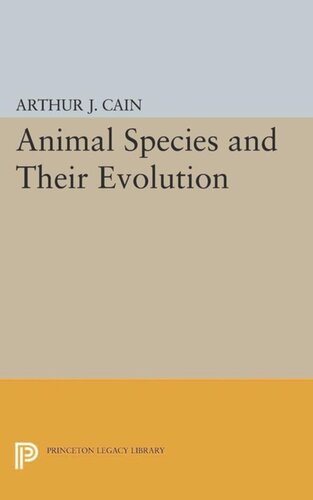

Most ebook files are in PDF format, so you can easily read them using various software such as Foxit Reader or directly on the Google Chrome browser.
Some ebook files are released by publishers in other formats such as .awz, .mobi, .epub, .fb2, etc. You may need to install specific software to read these formats on mobile/PC, such as Calibre.
Please read the tutorial at this link: https://ebookbell.com/faq
We offer FREE conversion to the popular formats you request; however, this may take some time. Therefore, right after payment, please email us, and we will try to provide the service as quickly as possible.
For some exceptional file formats or broken links (if any), please refrain from opening any disputes. Instead, email us first, and we will try to assist within a maximum of 6 hours.
EbookBell Team

4.0
66 reviewsLong before Charles Darwin undertook his first voyage, animal taxonomists had begun the scientific classification of animals, plants, and minerals. In the mid-1950s, taxonomist A. J. Cain summarized the state of knowledge about the structure of the living world in his major book Animal Species and Their Evolution. His work remains remarkably current today. Here Cain explains each of the terms by which scientists now classify all animals--from species through genus, family, order, class, and phylum.
The work of the modern taxonomist is dependent on the work of paleontologists, field biologists, ecologists, and other specialists who help piece together the puzzle of nature. This seminal text will interest students in each of these areas. It will also appeal to historians of science and to all amateur scientists with an interest in the animal kingdom.
Originally published in 1993.
The Princeton Legacy Library uses the latest print-on-demand technology to again make available previously out-of-print books from the distinguished backlist of Princeton University Press. These editions preserve the original texts of these important books while presenting them in durable paperback and hardcover editions. The goal of the Princeton Legacy Library is to vastly increase access to the rich scholarly heritage found in the thousands of books published by Princeton University Press since its founding in 1905.